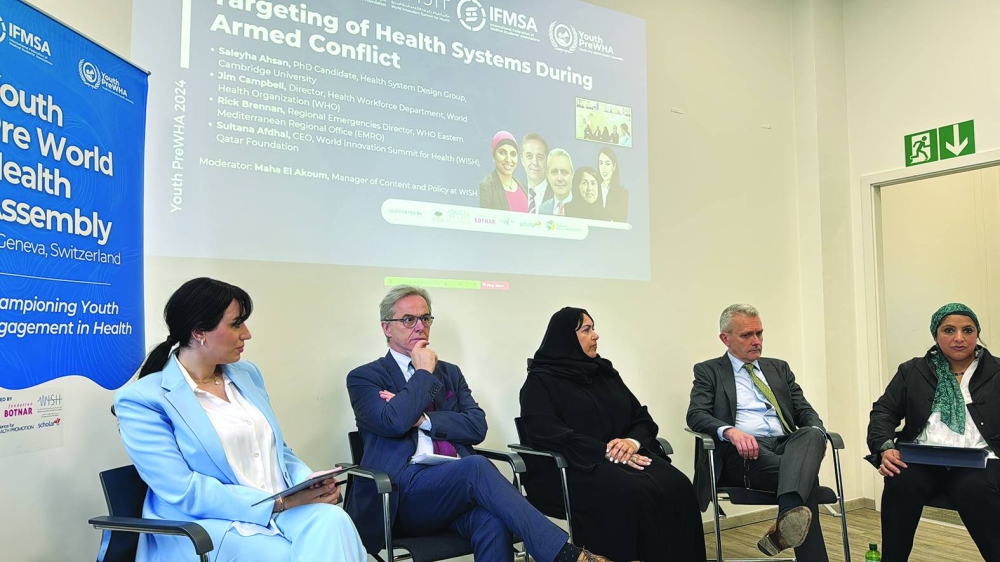At an event hosted by the World Innovation Summit for Health (WISH) and the International Federation of Medical Student Associations (IFMSA), on the sidelines of the 77th World Health Assembly in Geneva, Switzerland, global experts have drawn attention to the massive rise in attacks on health during armed conflict, with numbers almost doubling in 2023.
The session shed light on the targeting of health systems during armed conflict, exploring the challenges faced, assessing the impact, and discussing potential solutions to safeguard health in times of crisis.
“To date we have documented more than 900 attacks on health provision in Gaza and the West Bank since October 7 last year. In Sudan there’s hardly a health facility left that hasn’t been impacted”, said Rick Brennan, regional emergencies director, WHO Eastern Mediterranean Regional Office, speaking at the session, titled 'Targeting of Health Systems During Armed Conflict: Challenges, Impacts, and Solutions.'
“I don’t know an individual or organisation that’s ever been specifically held accountable for an attack on healthcare. We need more detailed investigations, we need to document what’s happening, and we need to put it into the hands of those who can take action.”
WISH, in collaboration with the WHO, will publish a report on health and armed conflict at WISH 2024, which will take place November 13-14.
Jim Campbell, director, Health Workforce at the WHO, noted: “Member states and Ministers of Health gathered this week at the World Health Assembly to recognise the need to protect health systems, including the workforce, whether it’s against public health emergencies, outbreaks, natural disasters, violence and harassment of personnel, or attacks in armed conflict. The current evidence is showing that attacks on health are increasing.”
Sultana Afdhal, chief executive officer, WISH, said: “Attacks on health are unacceptable. As a global platform for tackling the most challenging issues of our time it is vital that we lend our voice to those calling for action. Working alongside IFMSA to co-host this session in Geneva has given us the chance to mobilise tomorrow’s health leaders. As the health and care workforce of the future, they have a powerful voice to hold decision makers to account.”

Participants at the event.
